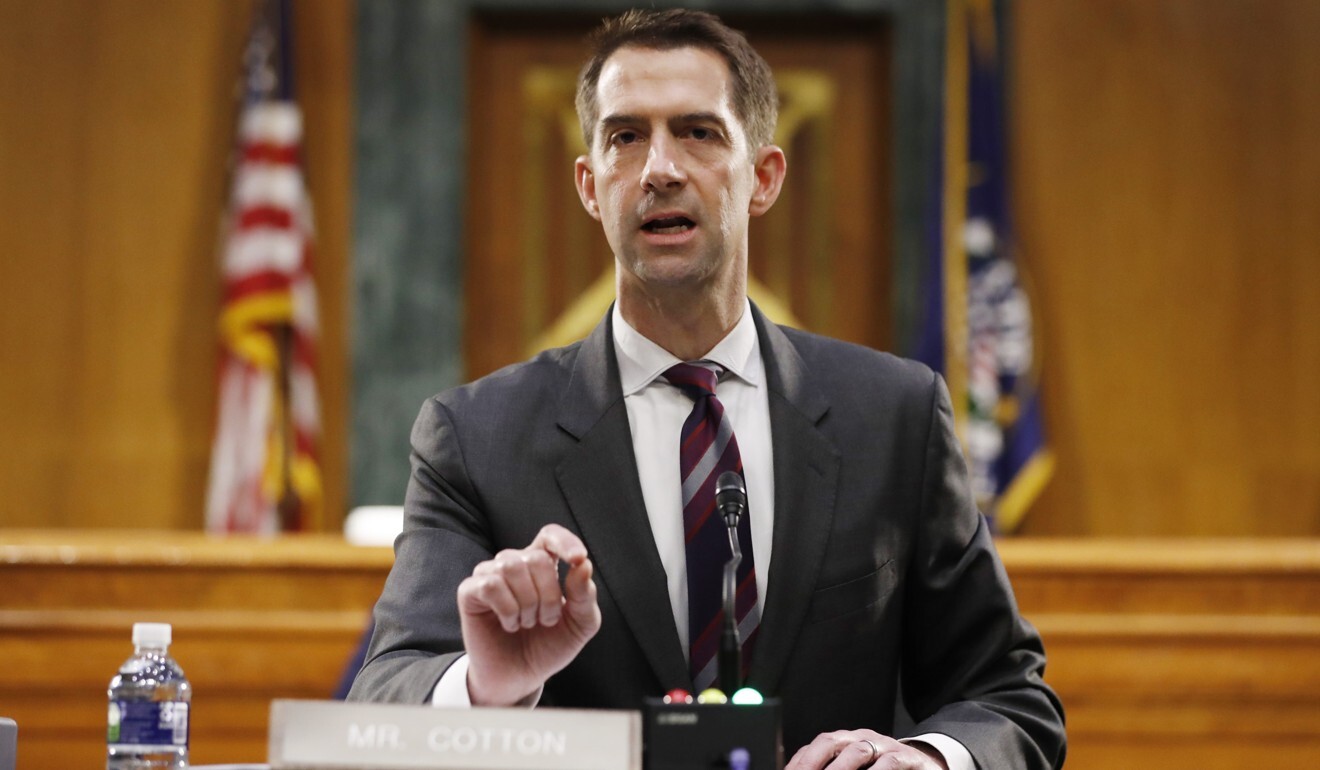
Change Chinese embassy’s US address to honour coronavirus whistle-blower doctor Li Wenliang, Republicans say
- Under new bills introduced in both the Senate and House, the official address of the Chinese embassy in Washington would be changed to 1 Li Wenliang Plaza
- This legislation comes as House Minority Leader Kevin McCarthy unveils a new task force that would conduct probes into a wide range of China-related issues
Congressional Republicans continued their assault on Beijing on Thursday, launching a campaign to change the address of its embassy in Washington in honour of the late coronavirus whistle-blower doctor Li Wenliang, and announcing the establishment of a party-led “China task force” in the House of Representatives.
Under new bills introduced in both the Senate and House, the official address of the Chinese embassy in Washington’s leafy northwest would be changed from 3505 International Place to 1 Li Wenliang Plaza.
“Renaming the street outside of the Chinese embassy ensures that Dr Li’s legacy is never forgotten and will serve as a stark reminder to the Chinese government and Communist Party that the US will stand with the oppressed and not with their oppressors,” said Republican Senator Marco Rubio of Florida, one of the bill’s original cosponsors.
If enacted, the legislation would require that maps, regulations and any other official records referencing the location be updated to reflect the name of the Wuhan doctor, who was silenced by authorities when he tried to raise an early alarm about the new coronavirus.
While physically located in the city of Washington, the embassy sits on a tract of federal land. Under the legislation, the federal government’s administrator of general services would be directed to erect signs bearing the new street name in the style of Washington’s signage.
The legislation came as House Minority Leader Kevin McCarthy, a California Republican, unveiled a new task force in the lower chamber that would conduct probes into a wide range of China-related issues.
On its agenda will be investigations into China’s influence campaigns on US soil, “economic threats” posed by the country to the US and allies, and China’s role in the origins and spread of the coronavirus, said McCarthy, who accused China of a “cover-up”.
Coronavirus latest: Trump valet has Covid-19, but president tests negative
The treatment of Li, who worked as an ophthalmologist in Wuhan, has become a fixture of US political figures’ criticism of China’s early missteps in its handling of the outbreak.
Both abroad and within China, Li has been hailed as a wronged whistle-blower, despite the fact he had not necessarily intended his warnings to go public.

Thursday’s bill was authored by Republican Arkansas Senator Tom Cotton, an increasingly vocal China hawk on Capitol Hill who recently raised eyebrows with his calls for Chinese students intending to study advanced science programmes in the US to be denied visas.
A companion version of Cotton’s legislation was introduced in the House by Liz Cheney of Wyoming, also a Republican.
The Chinese embassy did not respond to a request for comment.
The move would not be without precedent. Lawmakers successfully legislated in the 1980s to have the street outside the then-Soviet embassy renamed after Andrei Sakharov, the Soviet nuclear physicist-turned-pacifist and human rights advocate.
US authorities target Covid-19 criminals after flood of fake cures and PPE
More recently, a grass roots campaign in 2018 led to unofficial signage bearing the name of murdered Saudi Arabian journalist Jamal Khashoggi being placed outside the Saudi embassy.
The move will also not be the first time US lawmakers have targeted the Chinese embassy with a campaign to change its address as a form of protest against Beijing’s governance.
In 2014, lawmakers lobbied the city government to name the street outside the diplomatic outpost after Liu Xiaobo, the prominent Chinese human rights activist and Nobel Peace Prize winner.
Back then the Chinese embassy protested the campaign, telling The Washington Post that Liu had “violated Chinese laws” and arguing that the US public would “not like to see a US street be named after a criminal”.
Crafting a response this time round, however, could prove a thornier task.
Despite being initially castigated by local authorities for “spreading rumours”, Li has since been posthumously praised for his actions by Chinese officials and other government organs, with state media reporting in April that he was among a group of deceased doctors to be officially bestowed the title of “martyr”.
“Maybe people are not aware, he was a member of the Communist Party,” Cui Tiankai, Beijing’s envoy to the US, said in an interview with NPR days after Li’s death in February.
Another difference distinguishing Thursday’s legislation between the 2014 campaign is the absence of Democratic support, a further indication of the cracks that have formed in Capitol Hill’s long-standing consensus about challenging China’s actions and policies.
Some Democrats have raised concerns that hard-line legislation and rhetoric targeting China risks is fanning the flames of anti-Asian racism within the US.
The split was on full display on Thursday, as McCarthy said the new Republican-led China task force was originally intended to be a bipartisan affair, and accused the Democrats of pulling out “a few months ago”.
The panel will produce a report of its findings, including policy recommendations, by October, McCarthy said.

